- Home
- Roger Zelazny
The Black Throne Page 6
The Black Throne Read online
Page 6
She steered me toward a comfortable-looking chair, saw me seated in it. Closing the connecting door, she repaired to the far end of her stateroom, where she opened a cabinet. Shortly thereafter, I heard the cool clinking sounds of glass upon glass and the splashing of liquids.
She returned after a few moments with a tall tumbler of muddy, greenish liquid, bits of leaves and other matter floating on its surface.
"Looks like swamp water," I said, accepting it.
"Tastes like swamp water, too," I added, after a small sip.
"It is an herbal tonic," she explained. "Very relaxing."
I thought about it, then took another sip.
"Valdemar is—indeed—dead?" I said after a time.
"Yes," she replied, "but he tends to forget. Each time he remembers it becomes somewhat stressful."
"When, how did he die?"
She shrugged.
"Months, years, before we came aboard," she said. "Long before I found him."
I cast my gaze about her quarters, hung with bright tapestries, strewn with animal skins and oriental rugs. There were dark wood figurines I guessed to be African, decorated with copper wire and bright beads. A pair of Toledo blades hung upon one wall. There was a Turkish water pipe beside the huge, silk-curtained bed. The aroma of some exotic incense hung heavy in the air. It reminded me somewhat of a Gypsy caravan where I had once paid to have my palm read by a heavily rouged lady who, I felt, was somewhat overimaginative on my behalf. Yet there was something more to this ensemble than to that one. Peters had been right. I could almost see the ghostlands at her back.
"What is it that makes Valdemar special?" I asked.
"I gather he was part of an experiment in mesmerism," she explained, "on his deathbed. He is frozen at the exact point of transition between life and death. Because of this, he enjoys a unique perspective on events. It does require a particularly skilled mesmerist to deal with him, however, as he keeps trying to slip away into the darkness."
"And you are obviously a specialist in this regard."
She nodded.
"Where I come from the phenomenon is somewhat controversial," I said.
"Here it is a fact of life."
"I believe I felt it somewhat—twice now—in your presence."
"That is quite possible," she said. "Finish your tonic and I'll show you what it's like."
I gulped what remained, set the glass aside.
"That stuff didn't do much for me," I observed.
"It's quite mild," she replied.
"I thought you said it was a potent brew."
"No, you asked for something strong. That will be the treatment." She raised her hands. They seemed to sparkle. Once again, I felt the warm pulse, the faint tingling. "The tonic is but a preliminary."
"What will the treatment do for me?"
"I am not absolutely certain," she said, "in your case. What would you like it to do?"
"I'd just like to escape from myself for a time."
She smiled, extended her hands, lowered them. It was like being suddenly splashed by a very warm wave. I leaned back in my chair and let the feeling run through me. She was on Ellison's payroll, and she knew I was important to him. She gestured again and I attempted to relax fully, letting the feeling wash through me. Nothing the Gypsy'd done had felt like this.
While her first several passes were exhilarating, I realized after a short while, that they were also somewhat numbing. There was a distancing effect between my body and my consciousness. Then I realized that my thinking had grown sluggish. But it was coupled with such euphoria that I did not resist the lethargy.
Her hands drifted slowly past me.
"I am going to cause you to relax very deeply," she said. "When you awaken you should feel entirely refreshed."
I was about to respond, but then it did not seem worth the effort. Her hands passed me again and I was hardly aware of my body any longer. Except for my eyes. It seemed an awful lot of trouble, keeping my eyes open. I let them close. I felt the shadows of her hands go by once more. And then I was departing—soaring, bright white, drifting, turning to snow, falling... .
... Suddenly, my head felt funny, my stomach worse. I raised my hands to massage my temples. I opened my eyes. I lay in bed, propped by pillows. A threadbare blanket covered me from the waist down. As I lowered my hands they trembled slightly. I listened to the sound of a catbird from somewhere beyond the window. Looking about, I saw that I occupied a small and rather shabby room.
What was happening? I could not recall how I had come to this place ...
There was a note on the bedside table. I picked it up. It was addressed to Poe. Even more puzzled, I read it, hoping for some clue as to what was happening: Richmond, Sept. 29, 1835
Dear Edgar,—Would that it were in my power to unbosom myself to you, in language such as I could on the present occasion, wish myself master of. I cannot do it—and therefore must be content to speak to you in my plain way.
That you are sincere in all your promises, I firmly believe. But, Edgar, when you once again tread these streets, I have my fears that your resolves would fall through,—and that you would again sip the juice, even till it stole away your senses. Rely on your own strength, and you are gone! Look to your Maker for help, and you are safe!
How much I regretted parting with you, is unknown to anyone on this earth, except myself. I was attached to you—and am still,—and willingly would I say return, if I did not dread the hour of separation very shortly again.
If you could make yourself contented to take up your quarters in my family, or in any other private family where liquor is not used, I should think there were hopes of you.—But, if you go to a tavern, or to any other place where it is used at table, you are not safe. I speak from experience.
You have fine talents, Edgar,—and you ought to have them respected as well as yourself.
Learn to respect yourself, and you will very soon find that you are respected. Separate yourself from the bottle, and bottle companions, forever!
Tell me if you can do so—and let me hear that it is your fixed purpose never to yield to temptation.
If you should come to Richmond again, and again should be an assistant in my office, it must be expressly understood by us that all engagements on my part would be dissolved, the moment you get drunk.
No man is safe who drinks before breakfast! No man can do so, and attend to business properly.
I have thought over the matter seriously about the Autograph article, and have come to the conclusion that it will be best to omit it in its present dress. I should not be at all surprised, were I to send it out, to hear that Cooper had sued me for a libel.
The form containing it has been ready for press three days—and I have been just as many days deciding the question.
I am your true Friend, T. W. White I let it fall. I couldn't remember when I'd felt this weak. Nevertheless, I struggled, I rose, I crossed the room to a small mirror and studied myself within it—my face yet not my face. Haggard, red-eyed. I rubbed my temples again. So poor Poe was drinking too much, and this is what it felt like.
How had I wound up in his body?
I recalled Ligeia's hands drifting past me, doing things with the stuff of life itself it seemed. I remembered Valdemar, Peters, Ellison. And my last encounter with Poe. Did he think Annie was dead?
Could that be the cause of his present unhappy state?
If that were so, might it change things for the better with him if I were to leave him a message? I looked about for something to write it with.
"Eddie!" the voice of an older woman, from the next room. I elected not to answer it. "Eddie! Are you up?"
There. On the small table by the window. A pen. An inkwell. I hurried to them. Paper.
Paper ... ? The man was working for a magazine. He must have some paper. None in the drawer—
"Would you care for some tea, Eddie?"
Aha! In the box beneath the table.
I drew up th
e room's only chair, collapsed upon it. How to begin? I would have to refer to our shared experiences with Annie.
How many visions of a maiden that is, I wrote. And then the strength went out of me. I put down the pen. I could hardly keep my head up. At my back, I heard the door open. Curiosity bade me turn, but I was too weak to do it. I slumped.
"Eddie!" I heard her cry.
I was already losing myself again, floating, drifting away. Her voice grew tiny. My muscles went numb and the world turned gray. Then something stirred the currents of life inside me and shadows drifted across my eyes.
After a long while I sighed and looked upward. Ligeia's face was near, brows slightly knit in what might be an expression of concern as she scrutinized me.
"How do you feel?" she asked.
I shook my head and I patted my stomach. The feelings of hangover had vanished.
"Fine," I said, stretching. "What happened?"
"You don't remember?"
"I remember being in another place, in someone else's body."
"Whose?"
"Edgar Allan Poe's," I said.
"The one of whom you asked Monsieur Valdemar?"
I nodded.
"We go way back. And I'll bet he was here in my body while I was off in his."
It was her turn to nod.
"Yes," she said, "and he seemed either drugged, drunk, or mad. It was difficult to gain control, to send him back."
"Why did he come in the first place? Does this sort of switching happen often?"
"This was the first time I've ever seen or heard of it," she said. "That was a very strange man. It was almost as if I'd conjured some dark spirit."
I decided against asking what her experience was in the dark spirit area. I'd had enough excitement for one morning.
"He asked after an Annie," she continued, "and said something about his heartstrings being a lute. If he is not mad he must be a poet. But I wonder now—whether the thing that led to the transfer lies with him or with you."
I shrugged.
"Wait. Did not Monsieur Valdemar say you are somehow the same person?" she asked. "That would explain the metaphysics of it."
"Like all metaphysics, it explains nothing of any practical value," I said. "I am neither mad nor a poet.
My heart is not a musical instrument. I'm just in the wrong world, I think, and so is poor Eddie Poe. I don't know how it came to pass, but the man we're following had something to do with it."
"Rufus Griswold?"
"I believe so. Yes, that's right. You know the man?"
"We met once, in Europe. Years ago. He is dangerous—in some highly specialized ways as well as the ordinary."
"I gather he's some kind of alchemist."
"More than that," she said. "A black magician of some persuasion I do not know."
"Ellison thinks he interfered in some fashion with a relationship between Poe and Annie and myself to produce the present state of affairs, giving him Annie as a guide, displacing us all from our respective worlds."
She spread her hands and met my eyes.
"I do not know," she said. "But I find the idea fascinating. Shall I see whether I can learn more about it?"
"Please."
I rose.
"However ..." she said.
"Yes?"
"I'd like to question Monsieur Valdemar every morning, at about this time," she said. "The routine will be good for him."
"It will?"
"Even the dead need good work habits," she explained. "And I feel that, as head of this expedition, you should be present on these occasions."
"I guess I should," I agreed. "Too bad."
I headed for the door, halted when I reached it.
"Thanks for—everything," I said. "See you at lunch."
She shook her head.
"I take all my meals here," she told me. "But you're welcome to join me sometime."
"Sometime," I said, and I went out. The passageway about me was suddenly filled with white fire.
"Comment?" I heard Ligeia say, as at a great distance, right before her door fell shut.
"This way, Perry," a familiar voice called out. "Please."
It being the voice of the one lady I would walk through fire for, I moved ahead. But even the living can use a little peace and quiet, I reflected, momentarily envious of Valdemar.
IV
... Down the corridor of white fire, like a tunnel of flowing silver or a melting ice cave, rushing, I went.
For Annie called, and it seemed she must be just a bend away. But I turned a corner, I climbed, I turned again, and the brightness flickered—almost pulsing—and she still seemed just as near, but no nearer.
Again, I climbed.
"Annie!" I called out, at length. "Where are you?"
"Where I always am," she answered, her voice suddenly higher-pitched. "On the beach."
"I can't find you. I seem to be lost," I shouted.
Abruptly, the flames parted. For an instant, I was taken back to a long gone day. Nor did it seem unnatural that Annie as a small girl stood beside a pile of brushwood, a gleaming seashell in her hand, a line of troubled ocean visible beyond her right shoulder.
"Annie! What's happened?" I cried.
"It's Eddie," she said, "Edgar Allan... ."
"Poe," I said.
She frowned, then nodded. "Yes," she agreed. "Poe, too. And he's denying us. He is drawing away, and it hurts."
"I don't understand. What can I do?" I asked.
"Talk to him. Tell him we love him. Tell him we're real. Tell him—"
The flames closed again, hiding her from my sight.
"Annie!"
"I can't stay!" I heard her call out, weakly.
"How can I help you?" I cried.
I became aware of a pulsing in my hands, and then the ground began to sway and my shoulders were suddenly straining and the flames were flapping audibly.
"Annie!"
What I took to be the beginning of a response proved only the cry of a bird. But it might well have been a thunderclap for the drastic change it seemed to signal. Immediately, the flames became the flapping canvas of a sail, the throbbing thing in my hands a line leading to the nearby mast. My feet rested upon another line, the rolling of the vessel transmitted to me through it. My height above the deck made me uneasy and I gripped my line more tightly. I have always been bothered somewhat by high places, and a windy—possibly pre-storm—morning at this altitude troubled me considerably.
A clucking sound caused me to look to my left. Emerson swung toward me, anchored himself to the mast, extended his hand and took hold of my arm. Slowly, feeling the beast's strength and coming to trust his intention, I relaxed my grip upon the line and permitted myself to be led toward the mast and down it, finally achieving the surer footing of a wooden crosspiece, where I stood hugging the mast till the worst of the vertigo departed. It had been infinitely more frightening to find myself suddenly in that position than had I made the effort to climb carefully to it. I grunted my thanks to Emerson, who must have realized that I felt safer now, for he released me and moved off. Then I climbed down slowly, troubled by the turns my childhood visions seamed to be taking.
"Mr. Perry," came a familiar voice. "I am impressed by your conscientiousness as head of this expedition. Had I known you wished to inspect the vessel I'd have been only too happy to provide you with a guide—or have conducted your tour myself. I'd no idea a landsman might possess such diligence in nautical matters."
I clasped my hands behind my back to conceal their shaking, and I nodded slowly.
"Why, thank you, Captain Guy," I replied "It was hardly a tour of inspection—more a matter of satisfying my curiosity as to how things were secured above."
He smiled.
"Most prudent. I trust you were satisfied by what you saw?"
"Indeed. I was impressed."
"I was about to send you an invitation, sir, to take your luncheon with me in my quarters at eight bells, so we can get
to know each other a bit better and discuss this journey."
"Sounds like a good idea," I agreed. "Thank you. I'll see you then."
I returned to my own cabin for a little cowering and reflection. I sprawled on the big bunk, hands behind my head, gazing abstractedly at the containers of colored liquid on the lab table at the end of the room, musing upon the fact that Valdemar lay just beyond that wall. I thought over the events of the past several days, also, when the tempo of my life had commenced its acceleration. Questions I had been too sleepy, startled, distracted, or confused to articulate began tumbling through my mind. What was the power of the enemy, and where did it reside, for them to have been able to move Poe, Annie, and myself from world to world the way they had? What was Ligeia's strength? And of main importance, to me, why were my experiences with Poe and Annie—which had been casual things spread out over a lifetime—suddenly changing in character, frequency, and intensity? Never having understood their mechanism from the beginning, I was at a loss to understand these new developments. This most recent one, which had left me hanging in the rigging, puzzled me most of all. We had always been of an age in our encounters. Could Time itself be subject to arcane manipulation? And if so, why was it suddenly happening to us?
Somewhere before the point at which it all seemed clear to me I fell asleep. When I woke I could not remember the answers. But it was the ship's bell that roused me. In that I was not certain how many times it had rung, I left my quarters to find out.
I encountered Dirk Peters near the companionway, smoking a cigar. Every now and then Emerson, who lurked in a shadow, would reach out, borrow the cheroot, puff upon it, and return it.
"Indeed, Mister Eddie, 'twas eight bells you heard," he said, "and if you're lookin' for the captain's cabin, it's over that way." He gestured with the smoldering weed, which Emerson promptly borrowed.
"That first door?" I asked.
"The second," he responded. "I hear as you come out of the riggin' without getting' into it proper."
"I guess that's half the story," I said, refusing to ask him whether he could hold converse with Emerson.
At this, he chuckled.
"Must run," I said. "Thanks."
A hairy hand waved a cigar at me.

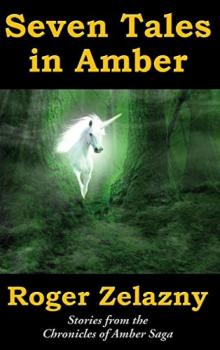 Seven Tales in Amber
Seven Tales in Amber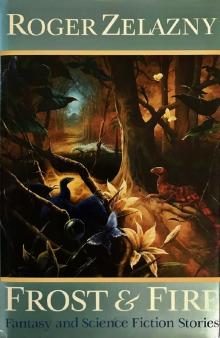 Frost and Fire
Frost and Fire Doorways in the Sand
Doorways in the Sand Unicorn Variation
Unicorn Variation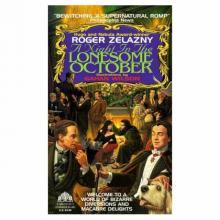 A Night in the Lonesome October
A Night in the Lonesome October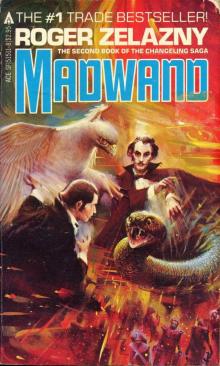 Madwand
Madwand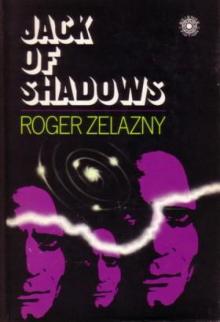 Jack Of Shadows
Jack Of Shadows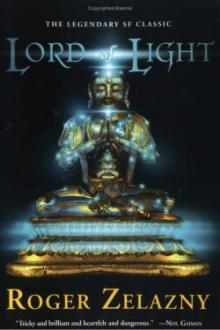 Lord of Light
Lord of Light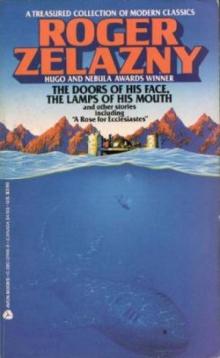 The Doors of His Face, The Lamps of His Mouth and Other Stories
The Doors of His Face, The Lamps of His Mouth and Other Stories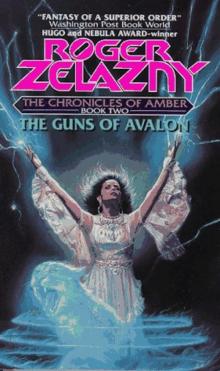 Guns Of Avalon tcoa-2
Guns Of Avalon tcoa-2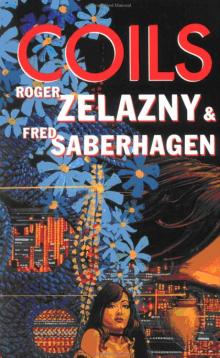 Coils
Coils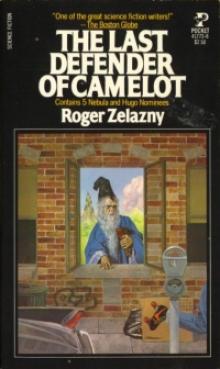 The Last Defender Of Camelot
The Last Defender Of Camelot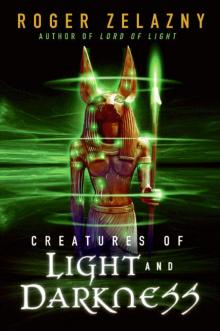 Creatures of Light and Darkness
Creatures of Light and Darkness This Immortal
This Immortal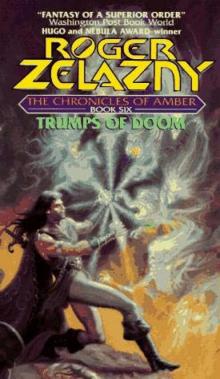 Trumps of doom tcoa-6
Trumps of doom tcoa-6 The Dream Master
The Dream Master The Complete Dilvish, The Damned
The Complete Dilvish, The Damned Nine Princes in Amber
Nine Princes in Amber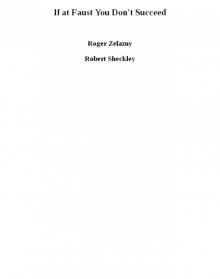 If at Faust You Don't Succeed
If at Faust You Don't Succeed Here there be dragons
Here there be dragons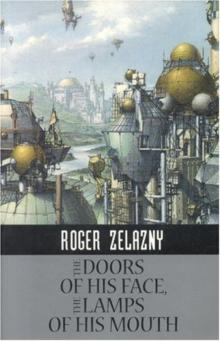 The Doors Of His Face, The Lamps Of His Mouth
The Doors Of His Face, The Lamps Of His Mouth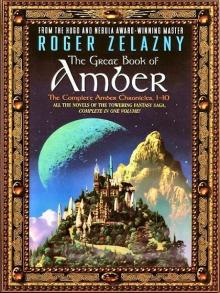 The Great Book of Amber - Chronicles 1-10
The Great Book of Amber - Chronicles 1-10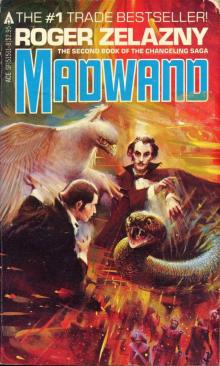 Madwand (Illustrated)
Madwand (Illustrated)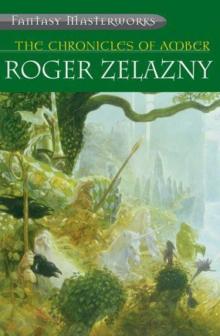 The Chronicles of Amber
The Chronicles of Amber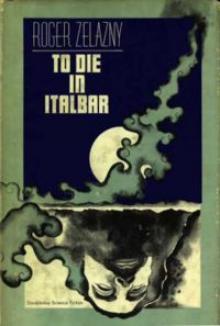 To Die In Italbar
To Die In Italbar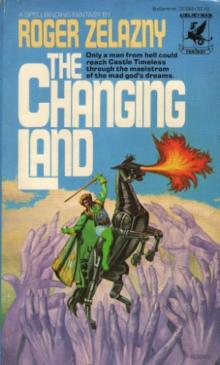 The Changing Land
The Changing Land The Furies
The Furies Nine Princes In Amber tcoa-1
Nine Princes In Amber tcoa-1 Last Of The Wild Ones
Last Of The Wild Ones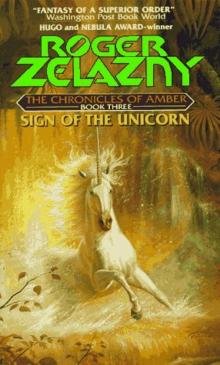 Sign of the Unicorn tcoa-3
Sign of the Unicorn tcoa-3 My Name is Legion
My Name is Legion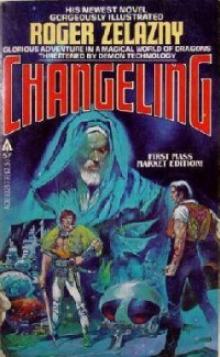 Wizard World 1: Changeling
Wizard World 1: Changeling Changeling
Changeling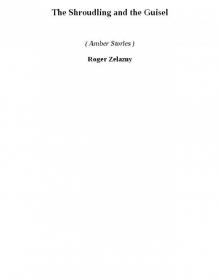 The Shroudling and the Guisel (amber stories)
The Shroudling and the Guisel (amber stories)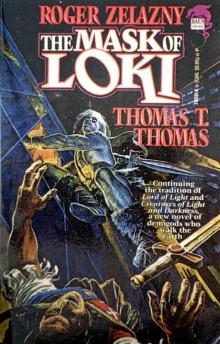 The Mask of Loki
The Mask of Loki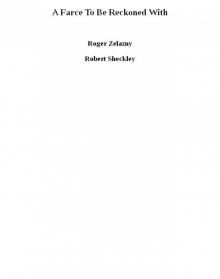 A Farce To Be Reckoned With
A Farce To Be Reckoned With Roadmarks
Roadmarks When Pussywillows Last in the Catyard Bloomed (rtf)
When Pussywillows Last in the Catyard Bloomed (rtf)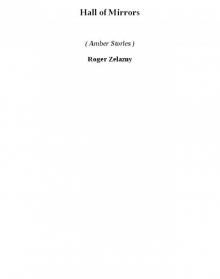 Hall of Mirrors (amber stories)
Hall of Mirrors (amber stories) Permafrost
Permafrost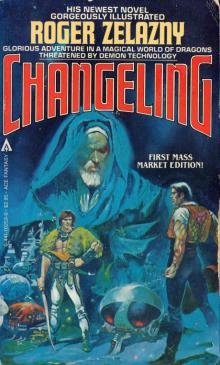 Changeling (Illustrated)
Changeling (Illustrated)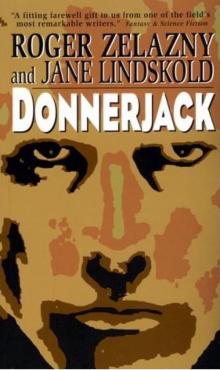 Donnerjack
Donnerjack Shadows & Reflections: A Roger Zelazny Tribute Anthology
Shadows & Reflections: A Roger Zelazny Tribute Anthology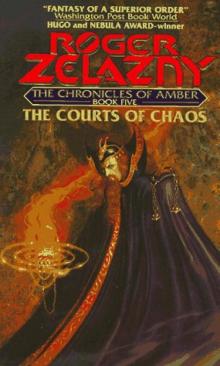 The Courts Of Chaos tcoa-5
The Courts Of Chaos tcoa-5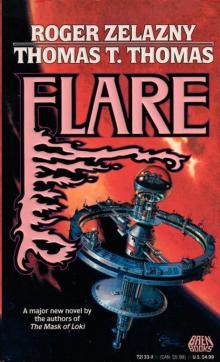 Flare
Flare Doorsways in the Sand
Doorsways in the Sand The Great Book of Amber
The Great Book of Amber Home Is the Hangman
Home Is the Hangman For a Breath I Tarry
For a Breath I Tarry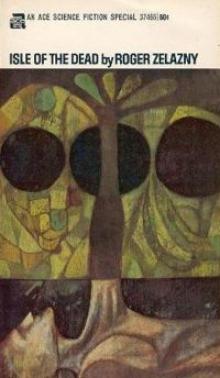 Isle Of The Dead
Isle Of The Dead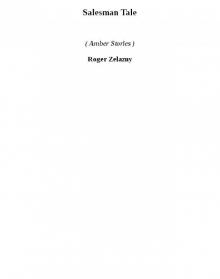 Salesman Tale (amber stories)
Salesman Tale (amber stories) Dismal Light
Dismal Light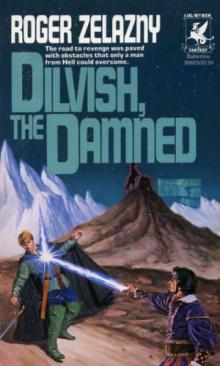 Dilvish, The Damned
Dilvish, The Damned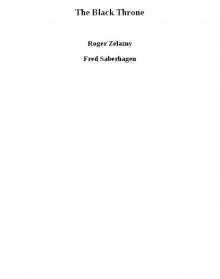 The Black Throne
The Black Throne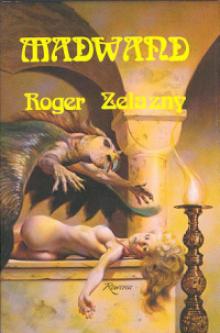 Wizard World 2: Madwand
Wizard World 2: Madwand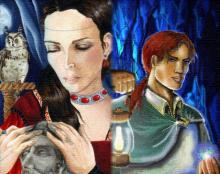 The Salesman's Tale
The Salesman's Tale